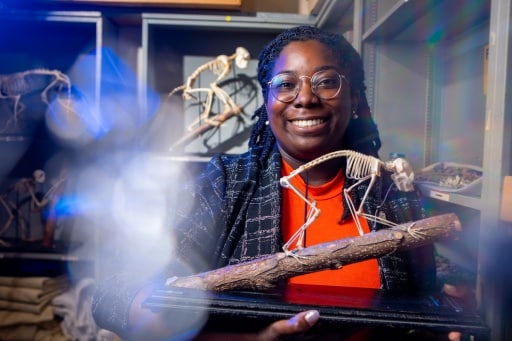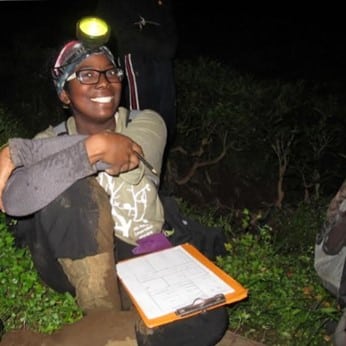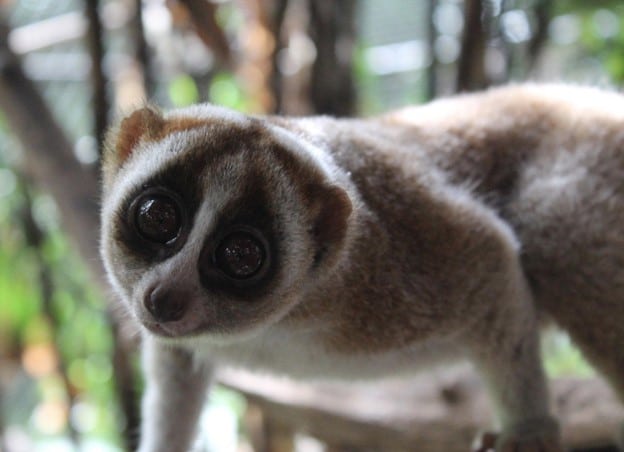
Meet Project Chimps Board Member Dr. Stephanie Poindexter
By Ari D'Arconte
Meet Dr. Stephanie Poindexter who joined the Project Chimps board of directors in 2020.

Dr. Poindexter is an assistant professor at the University of Buffalo who studies nocturnal primates. She got involved with Project Chimps after advocating an addendum on a bill helping to ban the interstate primate pet trade. Her research focuses on slow lorises, which are endemic to south and southeast Asia. She has a research center in northeastern Thailand to study these slow lorises. Dr. Poindexter studies both the behaviors of these endangered primates as well as how to conserve and protect them.
Dr. Poindexter’s research
Dr. Poindexter and her team have to stay up late at night for their research as slow lorises are nocturnal. They walk through the forests searching for them, placing cameras in locations they had previously spotted lorises, and at watering holes. She uses red lights at night to see them, as these lights make the eyes of slow lorises glow in the dark similar to a cat’s eyes.
As mentioned above, slow lorises are endangered. Dr. Poindexter talked about what it means to be studying an endangered species, “In fact, all slow lorises are endangered. Some of them are actually critically endangered, so they're doing even worse. All of them have declining wild populations and a lot of it is due to humans, like deforestation.” Human activity plays a large role in the decline of slow lorises. They are often kept as pets and there is folklore around the benefits of eating them, so some are poached for human consumption.

Slow Lorises
Slow lorises are an early branch of primates that retains a lot of traits similar to ancient primates. Dr. Poindexter also talks about the relationship between her primatology research and connecting it to humanity. “And so I'm really interested in sort of filling that space of understanding what early primates we're doing and what that means for how the rest of primates sort of evolved.”
Her research helps make information about slow lorises and primate evolution available to the world. This data can then be used across disciplines such as evolutionary biology and anthropology to gain a greater sense of how primates evolved and how to protect the slow lorises.
Interested in learning about our other board members? Find their bios here.

